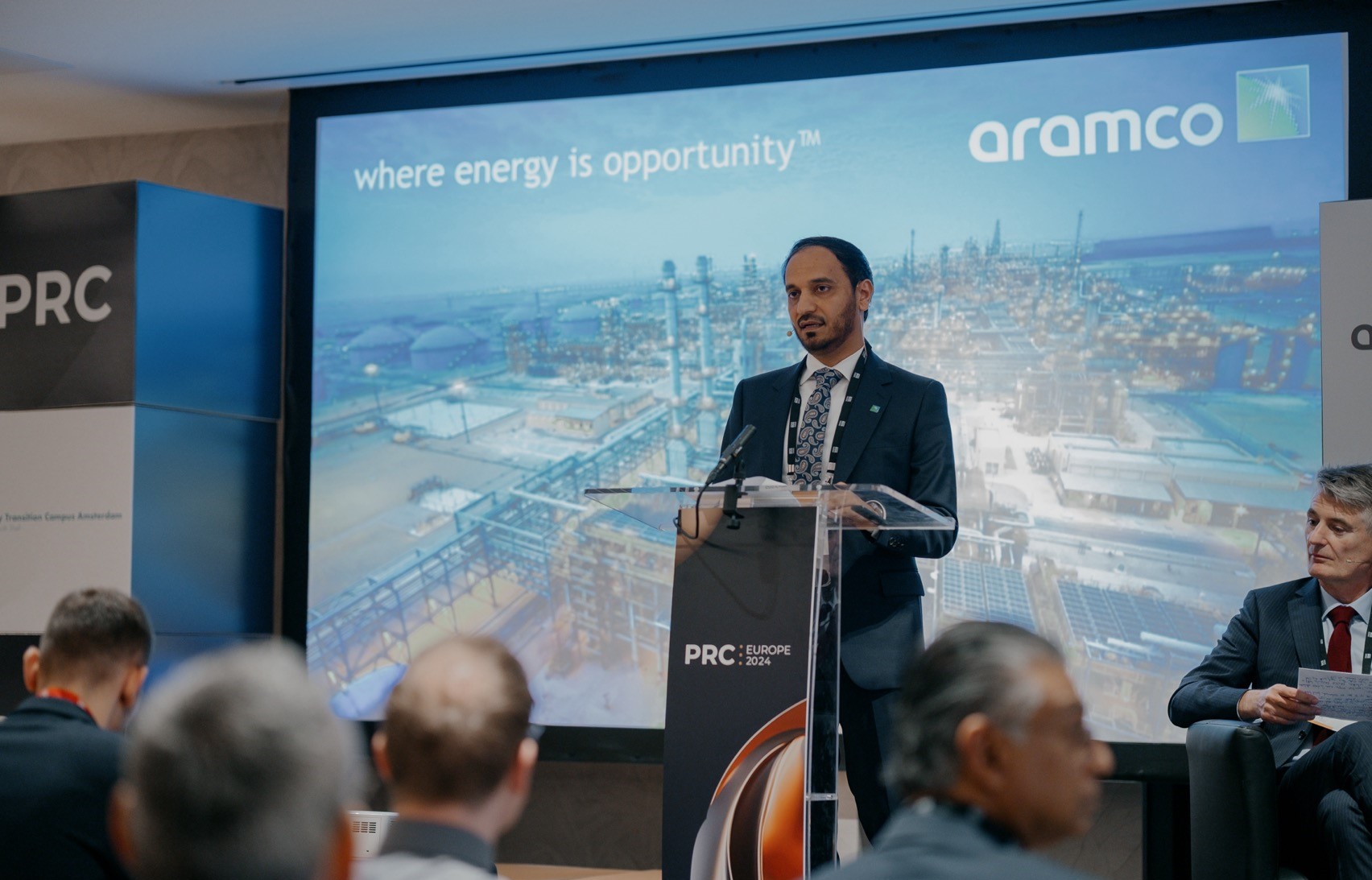Aramco Europe co-hosted this year’s Petrochemical & Refining Congress Europe, where downstream decarbonization strategies were in focus.
Aramco Europe Technical Services VP Khalid AlMoaili described how Aramco’s liquids to chemicals technology was helping to transform refinery operations as the global petrochemicals industry seeks to leverage innovation, in an effort to achieve lower carbon emissions when compared to conventional fossil fuels’ refining processes.
Rising anticipated chemicals demand globally has led to the development of large-scale integrated refinery and chemical complexes capable of producing a greater range of chemical products from different feedstocks.
“We are targeting 70 to 80% of each barrel of crude oil being converted to chemicals in a competitive manner while demonstrating clear technology leadership in this field” AlMoaili said in a speech to delegates at the event, which took place in Amsterdam from May 13-14.
This represents a far higher chemical conversion rate than conventional complexes. As a global average, a refinery produces about 8% naphtha (a chemical feedstock) per barrel of oil available for chemical production, according to IHS Markit.
Aramco’s liquids to chemicals program aims to remove or streamline several conventional industrial processes, resulting in chemicals that are less expensive to produce while also reducing the carbon footprint associated with their production when compared with the industry’s conventional manufacturing methods.
Changing global demand and the anticipated growth in chemicals has driven Aramco’s decision to favor investments in facilities with high liquids-to-chemicals conversion rates.




